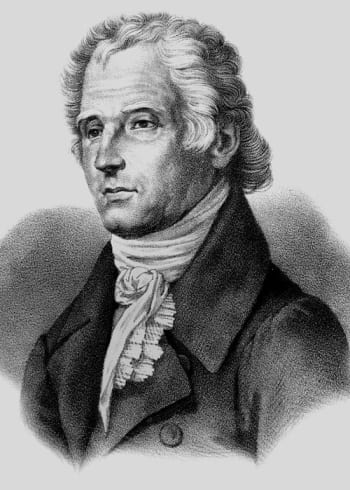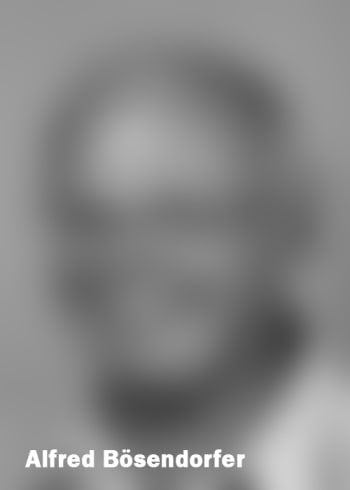Rundel Video: Ich bete an die Macht der Liebe | Media center
HomepageMedia centerRundel Video: Ich bete an die Macht der Liebe
This Media Center item can only be displayed if you agree to the use of marketing cookies. With one click you can accept it.
Ich bete an die Macht der Liebe
Info
Notes available at:
https://www.rundel.de/en/
Prayer to the Power of Love
I Pray for the Power of Love
Already as a boy, the Ukrainian composer Dmitry Bortniansky (1751-1825) was a member of the court choir in St. Petersburg. He then studied in Bologna, Rome and Naples returning to St. Petersburg in 1779. There he was promoted to state councilor and director of the court chapel. He forged this ensemble into a choir of European bearing. In his oeuvre he amalgamated Russian and western elements into a polyphonic style that he had learned about in Italy. His composition “Kol slaven nash gospod v Zionye” (in English: “How Glorious is our God in Zion”) plays a key role in military music ceremonies of different states. Next to its use in Russia and other Slavonic countries, it distinguishes itself due to its status in the German Grand Ceremony of Beating Retreat. Bortniansky composed this hymn between 1790 and 1801; it soon spread rapidly although it was actually written for the masonic lodge of St. Petersburg by one of its leading masons, M.M. Cheraskov (1733-1807) who himself introduced Bortniansky in the Petersburg lodge. Before the Czarist anthem by Lvov who was Bortniansky’s successor with the court chapel, “Kol Slaven” was performed in place of the national anthem. The hymn was also used for a number of solemn occasions in the army. Most important was its usage during the tattoo that was staged in the army’s daily evening routine. The path of the hymn to Germany began in St. Petersburg in 1824 when parson Johannes Goßner who had converted from catholic denomination, used the lyrics of the hymn “I Adore the Power of Love” written by the German composer of hymns, Gerhard Tersteegen (1697-1769). It is generally known in this version in the German-speaking countries. Due to his activities in Berlin (1826-1858) Goßner passed the song which he had become acquainted with in St. Petersburg together with the lyrics adopted from Tersteegen to the court of King Frederick William III of Prussia. The first performance of the chorale goes back to a massed bands concert (Concert monstre) that was staged in Berlin in 1838 to honor the Russian Czar Nicholas I who stayed in Berlin for a state visit. Wilhelm Wieprecht, the “Director of all Bands of the Guards Corps” set as finale of a demanding concert his newly arranged Grand Ceremony of Beating Retreat which then was called “Russian Tattoo”. Although some other airs were performed in place of Bortnianky’s since that time, it became eventually mandatory for the Ceremony of the Grand Retreat. This, however, occurred only recently on the basis of a joint service regulation of the German Federal Armed Forces. There is only one exception to this rule, as “The Bavarian Military Prayer” by Johann Caspar Aiblinger (1779-1876) will be played in that state for traditional and historic reasons.
Grade Level GB: 3-4
Grade Level USA: 2 (Easy)
Composer: Bortniansky, Dimitri
Arranger: Bösendorfer, Alfred
Genre: Chorale, Classic, Classical Transcription, Sacred Music, Trauermusik
Performance time: 2,36
Publisher: Rundel
Size: March / Card Size
Info: Full Score + Condensed Score + Parts
Rundel Order Number: MVSR2623
Release Date: 2018
https://www.rundel.de/en/
Prayer to the Power of Love
I Pray for the Power of Love
Already as a boy, the Ukrainian composer Dmitry Bortniansky (1751-1825) was a member of the court choir in St. Petersburg. He then studied in Bologna, Rome and Naples returning to St. Petersburg in 1779. There he was promoted to state councilor and director of the court chapel. He forged this ensemble into a choir of European bearing. In his oeuvre he amalgamated Russian and western elements into a polyphonic style that he had learned about in Italy. His composition “Kol slaven nash gospod v Zionye” (in English: “How Glorious is our God in Zion”) plays a key role in military music ceremonies of different states. Next to its use in Russia and other Slavonic countries, it distinguishes itself due to its status in the German Grand Ceremony of Beating Retreat. Bortniansky composed this hymn between 1790 and 1801; it soon spread rapidly although it was actually written for the masonic lodge of St. Petersburg by one of its leading masons, M.M. Cheraskov (1733-1807) who himself introduced Bortniansky in the Petersburg lodge. Before the Czarist anthem by Lvov who was Bortniansky’s successor with the court chapel, “Kol Slaven” was performed in place of the national anthem. The hymn was also used for a number of solemn occasions in the army. Most important was its usage during the tattoo that was staged in the army’s daily evening routine. The path of the hymn to Germany began in St. Petersburg in 1824 when parson Johannes Goßner who had converted from catholic denomination, used the lyrics of the hymn “I Adore the Power of Love” written by the German composer of hymns, Gerhard Tersteegen (1697-1769). It is generally known in this version in the German-speaking countries. Due to his activities in Berlin (1826-1858) Goßner passed the song which he had become acquainted with in St. Petersburg together with the lyrics adopted from Tersteegen to the court of King Frederick William III of Prussia. The first performance of the chorale goes back to a massed bands concert (Concert monstre) that was staged in Berlin in 1838 to honor the Russian Czar Nicholas I who stayed in Berlin for a state visit. Wilhelm Wieprecht, the “Director of all Bands of the Guards Corps” set as finale of a demanding concert his newly arranged Grand Ceremony of Beating Retreat which then was called “Russian Tattoo”. Although some other airs were performed in place of Bortnianky’s since that time, it became eventually mandatory for the Ceremony of the Grand Retreat. This, however, occurred only recently on the basis of a joint service regulation of the German Federal Armed Forces. There is only one exception to this rule, as “The Bavarian Military Prayer” by Johann Caspar Aiblinger (1779-1876) will be played in that state for traditional and historic reasons.
Grade Level GB: 3-4
Grade Level USA: 2 (Easy)
Composer: Bortniansky, Dimitri
Arranger: Bösendorfer, Alfred
Genre: Chorale, Classic, Classical Transcription, Sacred Music, Trauermusik
Performance time: 2,36
Publisher: Rundel
Size: March / Card Size
Info: Full Score + Condensed Score + Parts
Rundel Order Number: MVSR2623
Release Date: 2018
Recommended Articles
Ich bete an die Macht der Liebe
Already as a boy, the Ukrainian composer Dmitry Bortniansky (1751-1825) was a member of the court choir in St. Petersburg. He then studied in Bologna, Rome and Naples returning to St. Petersburg in...Concert Band
MVSR2623
Recommended Persons
Dimitri Bortniansky
* 1751† 10.11.1825
Dmitri Stepanowitsch Bortnjanski (im deutschsprachigen Raum auch Dimitri Bortnianski oder Dimitrij Bortniansky) war ein hauptsächlich in Russland wirkender ukrainisch-russischer Komponist mit großem Einfluss auf die Entwicklung der deutschen Kirchenmusik im 19. Jahrhundert.
Dimitri Bortniansky wurde in Hluchiw, der Hauptstadt des semi-autonomen Hetmanats im russischen Kaiserreich,...Info


